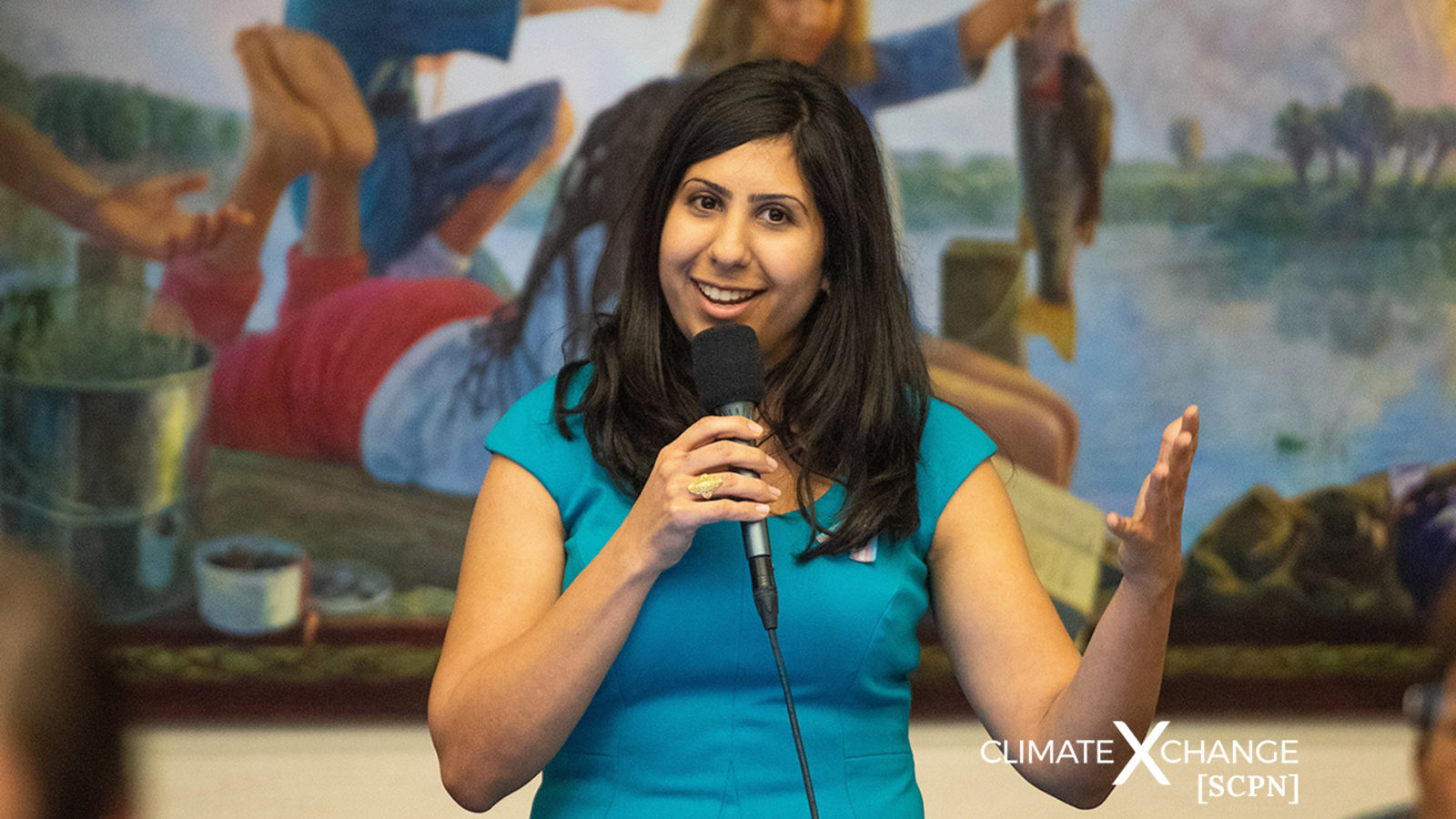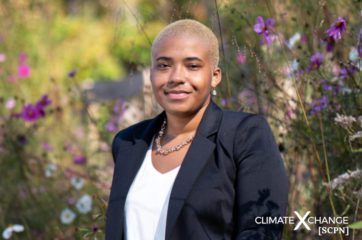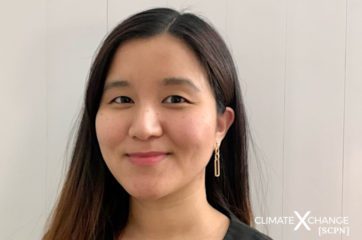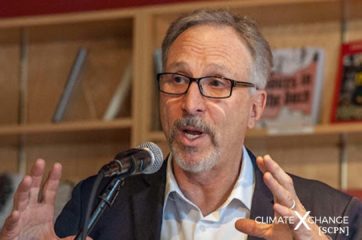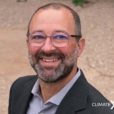Representative Anna Eskamani has been serving the residents of Florida House District 47 with a passion since 2018, flipping the seat as a first time candidate. She was born and raised in Orlando, and is the daughter of working class immigrants who came to America in search of a better life. She has a track record of kind sacrifice, endless hard work, and unwavering values. Anna has cemented herself as a beacon of hope and inspiration for young leaders across the country, and the conversation I was privileged to have with her shows why.
This interview has been lightly edited for clarity and brevity.
William Lemoine
Hello Representative Eskamani! Thank you so much for taking the time to talk to me today. Can you begin by telling our readers about your path and how you found yourself to be a Representative in the Florida State House?
Rep. Anna Eskamani
Yeah I’d love to! Thank you so much again for the invitation to join y’all. I come from very humble beginnings. I’m born and raised in Orlando, but actually on the east side of town. Kind of in unincorporated Orange County so there is a lot of sprawl there. My family was living in a working class neighborhood. I’m the daughter of working class immigrants, and I have a twin sister and older brother, and my parents did everything they could to achieve the American Dream. They worked multiple jobs to pay the bills on time — my dad actually went to school at UCF as he also worked as a waiter near the airport to pay for tuition to get himself through college and support his kids. He eventually became an engineer on the weekdays and worked as a customer service representative on the weekends to make ends meet. My mom had a degree from Iran that she couldn’t use, so she worked fast food jobs, and then eventually at K-mart. That would be her last job as in 2004 she passed away from cancer. So a lot of what I do is grounded in that lived experience with trauma, but also not wanting others to experience that trauma. Trying to build a society that takes care of one another, and guarantees access to healthcare, clean air, clean water, and every kid has a park to play in. Just really do our best to prevent tragedy from happening in the first place.
With that said, I went to UCF myself, and like many students I wasn’t sure exactly what I wanted to do. I started at UCF as an environmental science major because I have always cared about the environment and got really involved with green initiatives on campus, and volunteered at the arboretum. But eventually, I switched gears to focus on political science and I made women’s studies, which was my minor, into an additional major. I started engaging more with women and girls and specifically issues that impact women and girls, and in particular after my mom had passed away, I started reading a lot of literature about Iranian women, written by Iranian women and it was those stories that helped me stay on that. Women are treated differently in society, and there are also so many other layers of identity that impact a person’s access to privilege and of course experiences of oppression. Also the environmental connection here — so many environmental movements are led by women and there is a realm of study called eco-feminism, which studies those intersections as well. I dove deeper … and to make a longer story a little shorter, I ran for office in 2017 for the 2018 cycle as a first time candidate.
Now, I had worked at planned parenthood after college, worked there for six years, and was very focused on reproductive health and rights. But [I] also got my masters while back at school — I have my PhD — so … [I am] a huge advocate for evidence-based approaches to solving problems … [especially] in that first campaign, which was a really tough one as a first time candidate. It was a combination of many things that led me to run for office, but of course the election of President Trump and the direction he was taking the country was really upsetting to me. I was also really tired of elected officials in Florida not walking the talk. There is so much conversation about climate change and the environment, but at the same time what are you doing to hold polluters accountable? What are you doing to challenge the power of utility companies in the Sunshine State? Those were a lot of my motivations in being a candidate and part of my purpose as an elected official.
William Lemoine
Great, thank you so much! I’m so happy we’re having this conversation because I see all of the impressive things you do in your district on social media, but it’s great to have the background and say, ‘oh that’s what got you here and why you care so much.’
Rep. Anna Eskamani
Yeah — it’s all so personal. I think we need more candidates that are driven by a personal story and driven by a personal desire to do good. I think there are way too many politicians that are in office because of the title, because of the power, and the monetary gain. I think it’s always questionable when someone becomes richer while in office. I am fortunate enough to have two jobs. In Florida we have a part time legislature. Typically, unless you come from wealth, you have another job. So I have a full time non-profit job, but it’s funny that as I have grown as a young professional, I’ve actually given away more money than I’ve taken in! To the point where we have helped so many families that have become homeless and displaced throughout the pandemic, I’ve used my own money to support them. So I get suspicious when you see politicians gain substantial wealth and it’s like hmmm that seems a little questionable.
William Lemoine
It feels like, how could possibly be looking out for the interest of your constituents?
Rep. Anna Eskamani
Right, if you were getting richer and richer. It always seems questionable to me. At the very least speaks to the serious needs we have around campaign finance reform, which I won’t go into right now. But there are a lot of areas that need serious changes in.
William Lemoine
Without a doubt. But you can tell you genuinely care about your constituents. I mean case and point — you are doing more to be a resource for unemployment issues than the state itself.
Rep. Anna Eskamani
Right, that’s sad and true.
William Lemoine
You’re basically the de facto unemployment hotline now right?
Rep. Anna Eskamani
We truly are. It’s heart wrenching, but at the same time we are here to serve, and you have to run into the fire when you’re elected, not away from it. You have to try and create calm, not create chaos. That’s our responsibility and we’re proud to do it.
William Lemoine
I don’t think you can say it any better than that. Like you said, you do have to keep going. But over the past year, young leaders in particular have been under a lot of duress for a multitude of reasons. I was wondering — being a young leader yourself — do you have any advice for our readers that might feel a similar obligation to ‘run into that fire’ so to speak, but are experiencing a high level of burnout. I know you have so many experiences that have shaped who you are, but do you hone in on a particular strength when you’re facing down something really difficult?
Rep. Anna Eskamani
Yeah, really great question. Burnout is serious. I feel the symptoms of burnout all the time. I keep looking at my calendar and I go, ‘when can I take a break!’ because it is super important to take care of ourselves. As young people, we are focused on action. We don’t come to a meeting to get lost in bureaucracy, we go because we want to get something done. And that is such a powerful source of social change. But at the same time, we can’t keep coming at this work with trauma, we have to be looking at empowerment. If you keep coming to activism with trauma as your motivator, that is not going to be good for your long term mental health, and you’re not going to actually manage the trauma. We need to discuss that more in these spaces. So self care, seeking support of a therapist if you are someone that has experienced trauma, all of that is really important.
Everyone has a different personal ecology. I’ve never liked the term ‘work-life balance’ because it insinuates that it needs to be 50/50, even though everyone is different. So you need to find your personal ecology of what takes care of you, your mind and your heart, but also what takes care of your community, and allows you to do the work you care about done.
William Lemoine
That’s awesome to hear. Before you hopped on our call, Lauren from your staff described you as the ‘energizer bunny’ for your team.
Rep. Anna Eskamani
I love to hear that! Well we have a great team. We all are optimists. Sometimes we get cynical, but we try really hard to maintain as much optimism as possible.
William Lemoine
Well I won’t ask the last time you had a break was, but you are nothing but totally positive right now. I’m completely sure you bring that to your team too.
Rep. Anna Eskamani
I mean that was one of the other dynamics during the pandemic. Just being away from each other virtually, and having to build that same type of relationship through a digital space, which I do think young people have a strength in because we were born with technology around us. It’s still tough though, and it’s been nice to get back into the groove. Lauren and I have been going to a ton of events recently, and I’m very grateful for the vaccine and folks trusting it, because that’s what is going to get us out of this.
William Lemoine
Well, I’m sure your constituents are so happy to see you. You mentioned before that Florida does not have a full time legislative session, so I was wondering do you get a break from your other job while you’re there?
Rep. Anna Eskamani
I honestly don’t. Many lawmakers are lawyers, so they can delay court hearings based on the session if they are a court attorney. In my case, my boss is super flexible due to the fact that it’s remote work. As long as I’m in the state of Florida, I can do it, so I’m very blessed. And I’ve been with this organization for about three years, and it’s been a really great balance for me in the sense of the work doesn’t stop at my day job, but since I can be at Tallahassee and do it allows me to maintain the same focus and of course with the pandemic I was very lucky that it didn’t impact my day job…I was very lucky that I didn’t lose that job during the pandemic, which is why, during this past year, I’ve used my state salary to give away that money. I’ve helped pay for people’s rent, helped prevent cars from being repossessed, utility payments, sometimes we just buy food for people. Things that people really use, real life things.
And that’s another good point. When we talk about issues, in particular issues that impact the environment, we have to think about bringing the information to a level that everyone can understand and meet folks belly to belly on it. I do think as Democrats and strong advocates sometimes we get caught up in the weeds around policy, and it’s important to unpack the seemingly complex weeds where it’s easy for everyone to understand. But you also need to present the information that lets the listener know why they should take the time to understand the information. That’s the question you have to answer as an advocate. Because if you go to a group of working class people and try to discuss the global concern of climate change, the chances are most people are just worried about paying their bills on time. However, if you paint the picture in a way people can understand, like discussing real life implications of hurricanes, and explaining how communities can save money if we move away from fossil fuels. So really trying to explain the information in a way folks see the daily impacts of climate change, and how they can play a role in that. Because it’s not out of their reach to be impactful.
William Lemoine
Thank you so much Representative Eskamani. That comment actually ties back into another conversation I had with a union in Massachusetts. Some of their members, while they want to have a healthy future for their families, unfortunately their training has often been linked with fossil fuels so they made me realize incorporating those individuals as a part of the clean energy transition is essential.
Rep. Anna Eskamani
One-hundred percent! And the transition to clean energy is an inclusive transition. Everyone should be a part of it. So for those individuals that are currently employed by the gas and oil and coal industry, I want them to know that this transition will not happen without them. Not only should you be a part of it, but we need you to be a part of it. Your expertise, your commitment to delivering energy to the people of this country, that’s really important. So I do think that we need to communicate more effectively in that regard, and the bill that we filed in the legislature, and we will file again, our 100% renewable energy bill, actually pulled some language from Massachusetts. They crafted a proposal we saw, an advisory board focused on job creation, and it was such a great combination of the private sector, unions, environmentalists, and we added a reproductive justice voice to make sure that we are not leaving behind Black and Brown communities in this transition. And any job creation is also engaging with historic black universities and colleges to ensure they also have programming to get their students into the clean energy economy, so there is some really great work out there that shows this is supposed to be an inclusive process, and a lot of the fear around concerns like losing your job is unfounded. We need to be very vocal about that.
William Lemoine
Excellent, thank you for presenting all those different avenues and methods of collaboration. Even on the local level too, for example, there is so much going on in Orlando.
Rep. Anna Eskamani
We’ve actually connected IBEW to the city of Orlando last year. The city has been seen as a champion on clean energy, but we want to make sure these energy jobs are good paying jobs. And that has been really important to us on the local level.
William Lemoine
Great to hear, thank you so much Representative. It’s no secret that every state in the country has vastly different environmental policies — some even with regional or statewide initiatives to price carbon. So I was wondering what do you wish environmental advocates in places like Massachusetts, for example, who enjoy the privilege of somewhat progressive climate legislation, knew about states like Florida.
Rep. Anna Eskamani
That we need your help! We need to hear more of your stories on how you got there. I want to meet your Republicans and introduce them to my Republicans, because I believe that is part of the challenge too. The bipartisan nature of this topic is lacking in Florida, so what are we missing? How can we do better to build those relationships? Florida has a very regulated energy market as well, so utility companies are very in control and influential. They influence the public service commission, like other states. We see the same dynamic. We know we have very unique, Florida specific, barriers that get us to the point of renewable energy goals, but nonetheless I would love to learn more from other states about how they persuaded Republican voters and lawmakers to join them. We are constantly working on that in Florida, but there is so much more we can gain from other states as well.
William Lemoine
Definitely, it’s so important but such a tough question to say exactly how we get there. When I was working in the statehouse in Massachusetts, the running joke there would be Charlie Baker sitting by himself at the national Republican Governors convention because he is so different from everyone else.
Rep. Anna Eskamani
So different! And…finally in Florida, there has been a conversation on sea level rising, but no one will say why. And of course, nothing has been done around the root of the issue. And that’s what utility companies want. Utility companies want the conversation on resiliency but they don’t want to hold any responsibility for it. So we keep challenging them on that point.
William Lemoine
I had the privilege of doing some research in Florida for Climate XChange’s general staff, so that’s why I had a particular interest in your perspective. It’s sad, but you mentioned how utility companies will talk about resiliency and building solar, but not why we are doing that. One of my conversations in Florida was so interesting (with Ryann Lynn from Environment Florida) and she framed the situation so well I thought. She said, ‘if the bathtub is overflowing, the first thing you do isn’t to put towels around the bathtub, you’re going to turn off the faucet first.’
Rep. Anna Eskamani
So well said, makes perfect sense. I totally agree with that.
William Lemoine
I wanted to ask a specific question regarding Florida that I believe reflects on the rest of the country. Over 50% of Floridians approve of the job Governor DeSantis is doing. So how do we move forward with that knowledge, and find some common ground on issues like protecting the state’s natural resources, while people are being adversely impacted by HB1, for example, the anti-protest bill. We also mentioned inadequate unemployment systems, let alone climate injustice and inequality.
Rep. Anna Eskamani
It’s such a great question. One of the reasons why folks voted for the Governor and have been favorable towards him have been some of his stances on water. He has faltered on some of his more defiant positions on sugar. I say that because this session he signed a big pro-sugar bill into law. But the sugar industry did a great job in hiding the intentions of this bill, so from the perspective of the greater public, it’s called the Right to Farm Act and it allows the industry to continue burning cane, adversely impacting Black and Brown communities, and freeing themselves of any liability for that. So with that said, the Governor and corporations that support the Governor have done an effective job of hiding the true intent of many policies. Even with the anti-protest bill, supporters of the Governor call it anti-riot. It’s all about telling the biggest lie, but as long as the base takes the bait, the Governor doesn’t care.
So we’re up against disinformation, corporate influence, so we have to be really vigilant in firstly calling it out, constantly calling it out. Doing what we can to not just fall into the culture war, but actually use facts and share strong evidence of corporate influence, share strong evidence of the negative impacts of mass incarceration. In the case of the environment, to talk about the role sugar has played, utility companies have played in hurting our environment and slowing down our efforts towards renewable energy. If we lead by facts and bring the information down to someone belly to belly, that will help counter the disinformation out of the Governor’s office.
On top of this, and it’s one of the reasons people have asked me to run for governor, and I made the decision not to, was because I do feel like in politics there are a lot of queen bees, but not enough worker bees. We have a lot of people who want the headlines and be the person in charge, but they don’t want to do the work to get there. They are looking for a quick way up the ladder. And I’ve always been a worker bee. I can handle the responsibilities of managing an organization, and I’m proud to do that. But my happy place is when I’m in front of my computer getting things done. Those values for me translated to the fact that Florida has no infrastructure to run a strong statewide race. We keep thinking in the two-year cycle, meanwhile, the Republican party is thinking 10 years ahead. We need to press pause and collaborate and reconfigure our strategy and look at the state in an eight to 10 year cycle, not just for the next cycle. That’s what we’re doing here in District 47, we’ve launched voter registration initiatives to help complement the work of others to not only get people registered to vote, but also empowered to want to talk about these issues. So that’s our long term strategy, but candidly, I do think the Governor is running not just for the election but for President right now, so he’s building his war-chest and appeal on the national level. So when we operate on the two-year cycle, it makes it harder to cut through that, because you need to be smart and think long term.
William Lemoine
There are so many ideas coming forward and climate change is such an immediate issue, activists are in the business of acting now.
Rep. Anna Eskamani
Right, and in my district we flipped our seat, and won it again in 2020, but we also won two precincts that voted for Trump in 2020. And that says something. It says we do have an ability to persuade voters that typically left the Democratic side to come back. A lot of it is based on the fact that we challenge special interests, we deliver constituent services, we do what we say we’re going to do.
William Lemoine
I know DeSantis isn’t paying anyone out of his pocket.
Rep. Anna Eskamani
Exactly! But we’re also trying to call out a corporation when they cause harm, and we’re willing to fight for a $15 dollar minimum wage, even though it’s something that a lot of PR dollars have been spent to make it look like it’s dangerous. So many Democrats are very soft, I call them squishy Democrats, and when you’re a strong Democrat, I believe that appeals to a lot of people. Even if they are politically different from you, they can connect on some core areas. And the environment is one of them. People are tired of utility companies increasing their monthly bills while not providing efficiency programs, or not providing any cost saving options.
William Lemoine
Like you said, they are seeing the direct impacts of climate change now. Hurricanes are increasing in severity for example.
Rep. Anna Eskamani
Exactly, don’t even get me started on property insurance. And the reinsurance rate across the world is increasing, which increases the rates here in Florida. But one of the reasons those rates are increasing is because of big storms when a flood of claims are filed. Any global natural disaster impacts our insurance rates here. So we’re all interconnected. And I think inspiring more people to want to know that and empowering them to understand it — it not only creates a more engaged citizenry, but these are folks that are going to hold their politicians going forward, and that makes our entire democracy work better and leads to better policy.
William Lemoine
We’ll start turning that faucet off.
Rep. Anna Eskamani
Right, we’re doing it! We’re trying!
William Lemoine
Alright, thank you so much for speaking to me today Representative Eskamani! Have a wonderful day!

